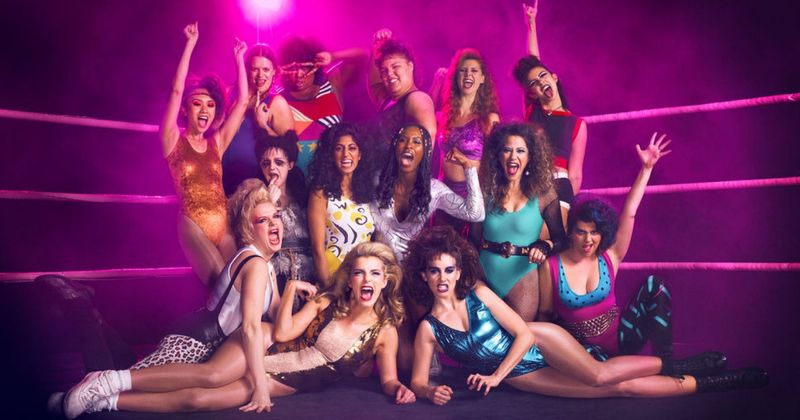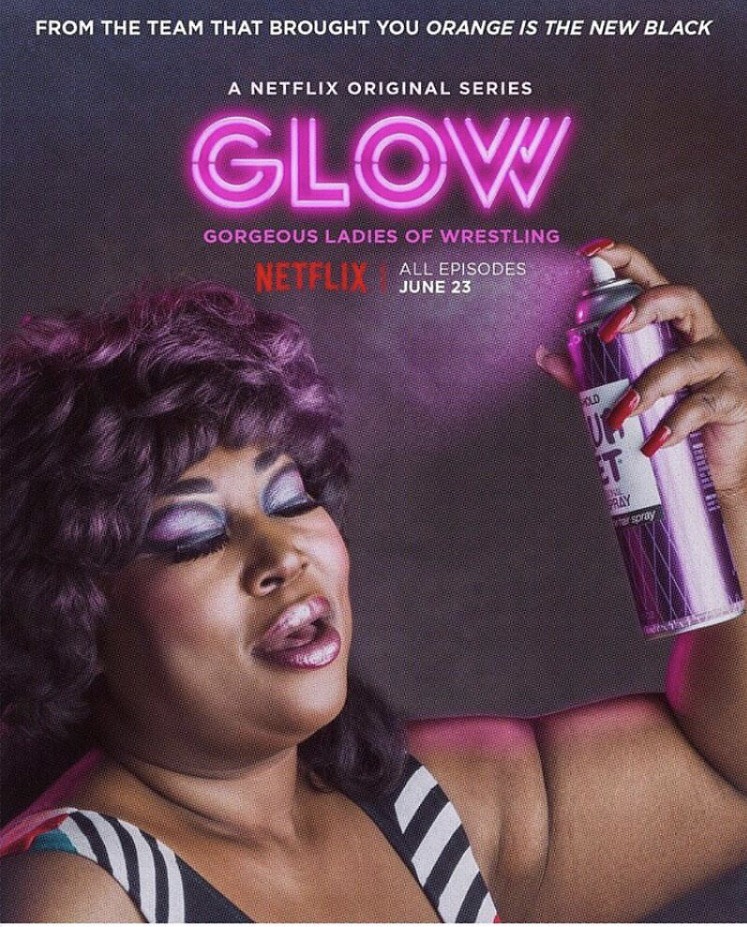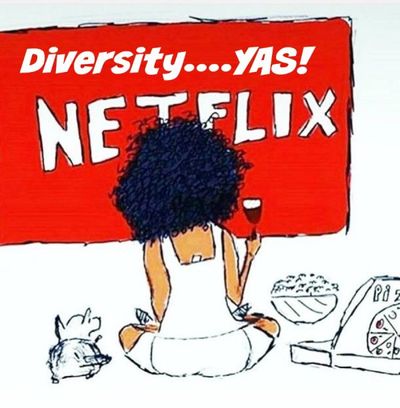You will either love or hate GLOW
I have to admit that I enjoyed it, but with some reservations.
GLOW is the new Netflix original based loosely on the Gorgeous Ladies of Wrestling TV series which ran from 1986 to 1989. The Netflix show co-created by Liz Flahive and Carly Mensch, and executive produced by Orange Is the New Black, Jenji Kohan takes us on an ’80s rollercoaster at the hands of a heavily dominated cast of diverse women. The show touches on the issues of friendship, betrayal, abortion, drug use, misogyny, and racial stereotypes. Boy, do we get racial stereotypes.

This theme is when my conflict with liking the show started. While I understand that is it just a TV show, and it is based off a real women’s wrestling show, the racial stereotypes, prominent throughout all ten episodes served as a reminder that we are living in similar times — all thanks to the incompetent orange nazi currently occupying the White House.
While this was was a problem for me, and I cringed at several scenes, the overall concept of the show, and the intricate relationship between the female characters was interesting to watch. The story introduces us to Ruth Wilder (Alison Brie), an up-and-coming actress, and her quest to land the right acting part, one that showcases a strong female lead. GLOW takes place in the San Fernando Valley, and it is as “Valley” as it gets. While struggling to get roles, Ruth lands at the audition for the pilot of a women’s wrestling show. The audition will bring Ruth together with a racially diverse group of women, looking for a shot to “glow” if you will.
In the show, we also meet Debbie Eagen (Betty Gilpin), a friend of Ruth’s throughout the course of the season we find how their relationship is tested, especially when they have to work together as part of the tv pilot ensemble, they both auditioned and are cast as leads.
Drugs, misogyny in the workplace, racial tension, and abortion are key points in this season. The episode about abortion is compelling, and also hard to watch. It explores the consequences of wrongdoing, and how individual decisions affect you for the rest of your life. The show also showcases how friendships and bonds are developed among females, especially when they come from different racial and socioeconomic backgrounds.
The show has so much to explore, and while I understand that season one was the premise to introduce all characters briefly, and the central premise of the show; I would love to see a development in the stories of the other women.
For example, the back story of Cherry Bang (Sydelle Noel), a Black actress growing tired of acting parts always going to white women, Tammé Dawson (Kia Stevens) who was given the wrestler name of “Welfare Queen,” a name that does not sit well with her. Arthie Premkumar (Sunita Mani), the only Middle Eastern women of the group, dubbed “Beirut, the Mad Bomber.”
Also, zero Latinx representation, though there’s a character names “Macchu Picchu,” it doesn’t count because the actress is not even Latinx, major bummer! (Remezcla did put together a list of real deal Latinx wrestlers to check out.)

These stereotypes are extremely offensive, and GLOW can explore the political and racial climate of the ’80s. In season two, I would like to see the internal conflict the women of color go through, how their race, feminism and personal stories get tested. Sure, Brie and Gilpin give us outstanding performances, but the show can do more to let us into the depths of the other characters.
As with every other ’80s show on TV, if you love that glorious decade and all its glitter, Aqua Net, blue eyeshadows, shoulder pads, and hi-cut leotards, you will enjoy watching GLOW.



